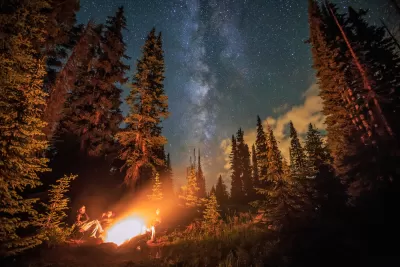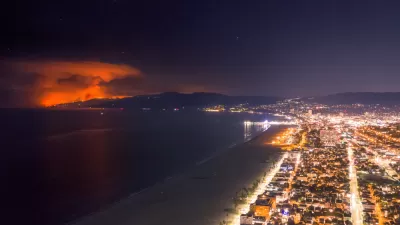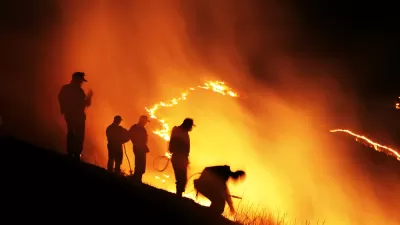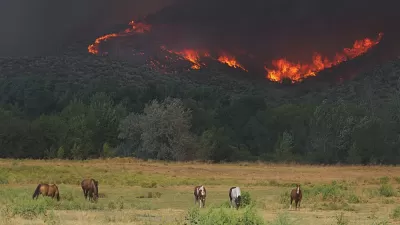Regulators are increasingly requiring outdoor adventurers to enjoy wilderness excursions without the solace and warmth of a campfire, as the drought and heat of climate change leaves natural areas ready to spark and burn year-round.

Conrad Swanson reports from Colorado, where campfires, that enduring symbol of the American West and the great outdoors, are increasingly illegal.
“The days of explorers ambling into Colorado’s backcountry, gathering kindling and sparking a fire for some supper and perhaps a s’more or two are gone,” writes Swanson for the Denver Post.
“Despite the spring months historically serving as a wet time of year, especially as snowpack begins to melt off, as of Tuesday, 24 of Colorado’s 64 counties and one Native American tribe reported at least some fire restrictions in place,” reports Swanson.
Regulators use a metric called energy release component (ERC)—basically the moisture levels in plants—to determine how hot a fire would burn and set campfire regulations accordingly. The ERC is up by as much as 50 percent around the American West, according to research and an expert cited in the source article.
Both state and federal land managers are responsible for the bans, which have become commonplace as wildfire risks grows and the state looks to protect not only its natural and built environments, but its $37 billion outdoor recreation economy.
FULL STORY: No more s’mores: Is this the end of campfires in Colorado?

Maui's Vacation Rental Debate Turns Ugly
Verbal attacks, misinformation campaigns and fistfights plague a high-stakes debate to convert thousands of vacation rentals into long-term housing.

Planetizen Federal Action Tracker
A weekly monitor of how Trump’s orders and actions are impacting planners and planning in America.

Chicago’s Ghost Rails
Just beneath the surface of the modern city lie the remnants of its expansive early 20th-century streetcar system.

Bend, Oregon Zoning Reforms Prioritize Small-Scale Housing
The city altered its zoning code to allow multi-family housing and eliminated parking mandates citywide.

Amtrak Cutting Jobs, Funding to High-Speed Rail
The agency plans to cut 10 percent of its workforce and has confirmed it will not fund new high-speed rail projects.

LA Denies Basic Services to Unhoused Residents
The city has repeatedly failed to respond to requests for trash pickup at encampment sites, and eliminated a program that provided mobile showers and toilets.
Urban Design for Planners 1: Software Tools
This six-course series explores essential urban design concepts using open source software and equips planners with the tools they need to participate fully in the urban design process.
Planning for Universal Design
Learn the tools for implementing Universal Design in planning regulations.
planning NEXT
Appalachian Highlands Housing Partners
Mpact (founded as Rail~Volution)
City of Camden Redevelopment Agency
City of Astoria
City of Portland
City of Laramie





























